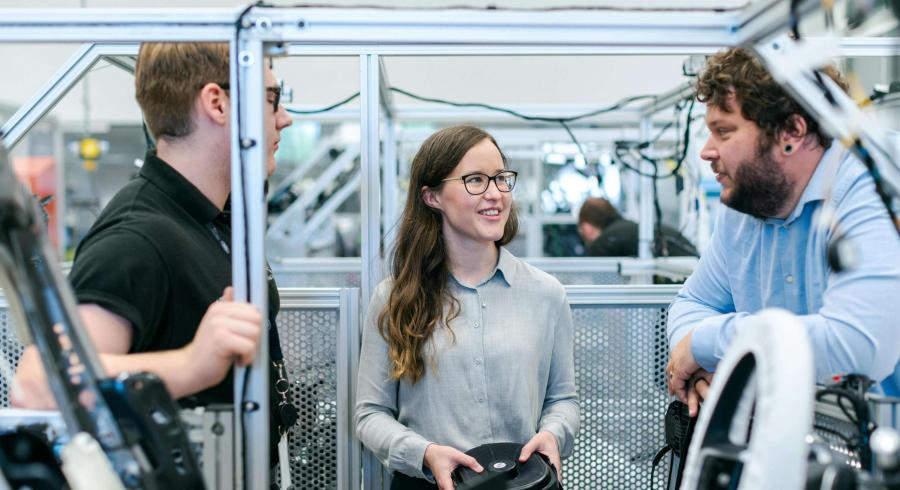

25
02
2025
By James Green

Improving Your Hiring Process: Creating a Positive Candidate Experience
Back to BlogsIntroduction
The expectations of employees and job seekers have evolved significantly over the past few years. Today, candidates seek not only financial stability but also organisations that demonstrate strong values, social responsibility, and empathy.
While organisations focus on improving workplace culture, many overlook a crucial aspect of the hiring process: the interview experience.
CareerPlug’s 2025 Candidate Experience Report found that 66% of candidates said a positive interview experience influenced their decision to accept a job offer, while 26% declined offers in 2024 due to poor experiences such as lack of communication or unclear job expectations.
A poor candidate experience can damage your employer brand and make it harder to attract top talent. According to ERE Media’s Candidate Experience Benchmark Research, overall candidate satisfaction declined sharply in 2024, with the Technology sector experiencing some of the highest levels of discontent
Candidates frequently share their hiring experiences on platforms like LinkedIn, Glassdoor, and industry forums. A PwC survey found that 92% of candidates encountered poor recruiting practices, and 56% said they would discourage others from applying to a company with a negative hiring experience. Just one bad experience can deter potential candidates and harm your company’s reputation
This guide outlines key strategies to improve the interview and overall hiring experience, helping your organisation stand out as an attractive workplace for candidates.
1. Be Transparent About Salary Expectations
According to Reed, job ads that disclose a salary receive 60% more applications than those that don’t—a 33 percentage point increase since 2021. Failing to be transparent about pay from the start can discourage candidates from applying and frustrate those who do, especially if their salary expectations aren’t met after investing time in the interview process
Best Practices:
Disclose salary ranges in job postings to set clear expectations.
Discuss compensation openly in initial screening calls.
If a candidate’s expectations exceed the budget, address it early rather than after multiple interview rounds. Many candidates may be willing to adjust their expectations based on role scope, benefits, or career growth opportunities.
2. Respect Candidates’ Time
Research by recruitment firm Eden Scott found that 52% of candidates are unwilling to attend more than two interviews for a job offer, highlighting how lengthy hiring processes can deter potential employees. Only 27% are willing to go through three interview rounds, and just 12% would consider four or more.
A Greenhouse Candidate Experience Report found that application length is a major concern for job seekers. For 66% of candidates, the time required to complete an application influences their decision to submit it. Additionally, over 70% of job seekers said they would abandon an application if it takes longer than 15 minutes to complete.
Best Practices:
Limit the number of interview stages: Google research found that 94% of the time, hiring decisions remained the same whether candidates were interviewed 4 times or 12 times.
Limit unnecessary in-person interviews. With video technology readily available, reserve face-to-face meetings for final-stage discussions.
Be mindful of take-home assignments. While technical assessments are important, lengthy take-home tests can be burdensome. Keep them under two hours, and consider alternatives such as live coding sessions or paired programming exercises.
Offer flexible interview scheduling. If candidates are currently employed, consider offering early morning, evening, or weekend slots.
Candidates will evaluate your company based on how you treat them during the hiring process. If your interviews feel rigid and inefficient, they may assume the workplace culture is the same.
3. Streamline Your Hiring Process
A Talent Board survey revealed that 55% of candidates expect the hiring process—from the first interview to the job offer—to take between one and two weeks. Delays beyond this period may result in losing desirable candidates
Best Practices:
Aim to complete the entire interview process within two weeks to remain competitive.
Make job offers within 24-48 hours of the final interview. Studies show that candidates are 78% more likely to accept an offer when received within one week of the final round.
Ensure clear and timely communication at each stage of the process.
4. Provide Constructive Feedback
Candidates dedicate time and effort to your interview process, and they expect constructive feedback. However, research shows that around 40-50% of candidates report receiving no feedback after an interview. This lack of communication can lead to frustration and leave a negative impression of your company, potentially deterring future applicants and referrals.
Best Practices:
Don’t keep people waiting: Aim to provide feedback within 24-48 hours while the interview is fresh in your mind.
Be Honest (But Constructive): Honest feedback helps candidates grow, while vague or misleading feedback does the opposite.
Highlight Strengths: Not all feedback should be negative. Acknowledging what the candidate did well gives them confidence and ensures they leave with a positive impression of your company—even if they weren’t selected.
Offer Actionable Advice: Where possible, guide candidates on how they can improve.
Avanti has created a blog providing tips on giving effective interview feedback which covers this area in more detail
5. Summary - The Benefits of a Positive Candidate Experience
Creating a positive interview and hiring experience isn’t just about being considerate to applicants, it creates a strategic advantage. A streamlined, transparent, and respectful hiring process can significantly impact your employer brand, talent acquisition success, and even business performance.
By implementing best practices, such as being upfront about salary, respecting candidates’ time, streamlining hiring stages, and providing constructive feedback, you can enhance your reputation as a desirable employer. Candidates talk, and their experiences influence future applicants. Ensuring every interaction is professional and engaging will help your organisation attract and secure the best talent in a competitive market.

14
01
2026
AI, speed, and what we’re actually seeing in the hiring market
AI is still often discussed in terms of replacement. Which roles disappear. Which survive. That framing is already behind what’s happening. The more immediate shift is speed. Work is being compressed faster than most organisations are set up to

18
11
2025
Counter-Offers in Recruitment: Do They Really Work?
Learn why most counter-offers fail to retain employees long-term and how to build a proactive retention strategy that boosts engagement and reduces turnover. When a long-standing employee resigns, it can feel like a major setback. Not only does th

20
10
2025
How to Prevent Workplace Burnout.
The modern burnout problem Burnout isn’t new, but it’s changed shape. In 2025, it’s less about relentless hours and more about the invisible exhaustion of constant digital demand. People aren’t just tired; they’re overstimulated. The modern profes











